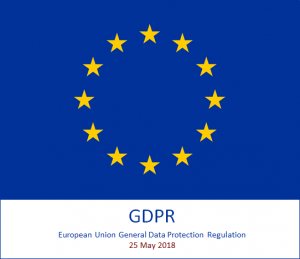
 The European Union’s General Data Protection Regulation (GDPR) goes into effect on May 24 (tomorrow, as I write this). You’ve probably received emails from your business partners, vendors, and companies that send email to you; asking you to opt in to emails that you already receive – and giving you the opportunity to ignore those which you no longer need.
The European Union’s General Data Protection Regulation (GDPR) goes into effect on May 24 (tomorrow, as I write this). You’ve probably received emails from your business partners, vendors, and companies that send email to you; asking you to opt in to emails that you already receive – and giving you the opportunity to ignore those which you no longer need.
The GDPR provides a regulatory framework to ensure the protection of personal data. But if you’re a technology provider to a company that proivdes consumer-facing video services to consumers in the European Union – one step removed from the consumer – do you need to care about GDPR on behalf of your service provider customers? The short answer is almost surely yes! (consult your corporate counsel)
The TV service delivery and security platforms that enable service providers and content providers to offer video services to consumers provide features that allow them to manage their end-users, and allow end-users to manage their own preferences for the services they take. These end users rely upon the provider to implement personal data preferences according to their desires, including the privacy of their personal data.
Consumer-facing entities will turn to their technology suppliers to help them comply with the GDPR. Suppliers outside the European Union that enable services to Europeans from the cloud are not exempt. According to Article 3, Recital 22, “Any processing of personal data in the context of the activities of an establishment of a controller or a processor in the Union should be carried out in accordance with this Regulation, regardless of whether the processing itself takes place within the Union…”
So a note to vendors and B-to-B service providers: if your platform manages privacy preferences for consumers in Europe and you haven’t paid attention to GDPR, the train leaves the station tomorrow! The penalties for non-compliance are very stiff: “For … especially severe violations … the fine framework can be up to 20 million euros, or in the case of a company, up to 4% of their total global turnover in the previous fiscal year, whichever is higher. But even the catalogue of less severe violations … sets forth fines of up to 10,000,000 euros, or, in the case of a company, up to 2% of its entire global turnover of the previous fiscal year, whichever is higher.”
It’s not something to lose customers over. Are you paying attention now?

